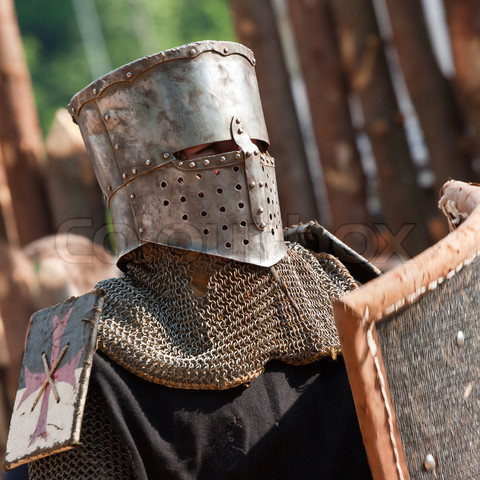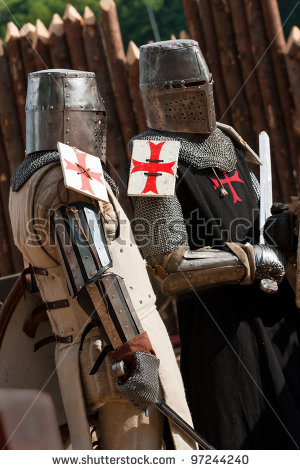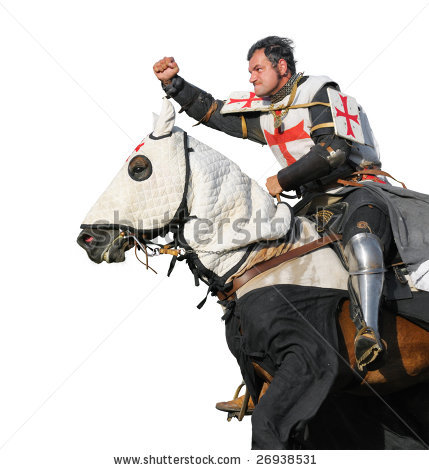Posts: 1,302 Location: Jackson, MS, USA
Sun 21 Oct, 2012 9:50 am
1. Ailletes seem to have been popular from c.1280-c.1350. Their primary function seems to be heraldic display and identification from the side, though they offer limited shoulder protection. None of the period monuments or art seem to show the "through-lacing" used by the reenactors in your photographs.
2. The flat looking coif was likely accomplished through the use of a padded arming cap worn under the mail, though it is possible that the mail was worn over an iron helmet. The effigy of William Longespee (Longsword) the elder shows this in the 1220s, and the Wells Cathedral knights from the 1230-1240s seem to have similar profiles from arming coifs over the mail.
http://effigiesandbrasses.com/static/monument..._r1588.jpg
http://effigiesandbrasses.com/monuments/?name...;view=list
I suspect the look faded as helms lost that big flat top to a more tapered design after 1260 or so. The decorative ring over the coif seems to an odd interpretation of both straps--often woven through the mail to keep the coif tight to the brow but sometimes external, or the padded ring on the arming coif seen at Wells.


